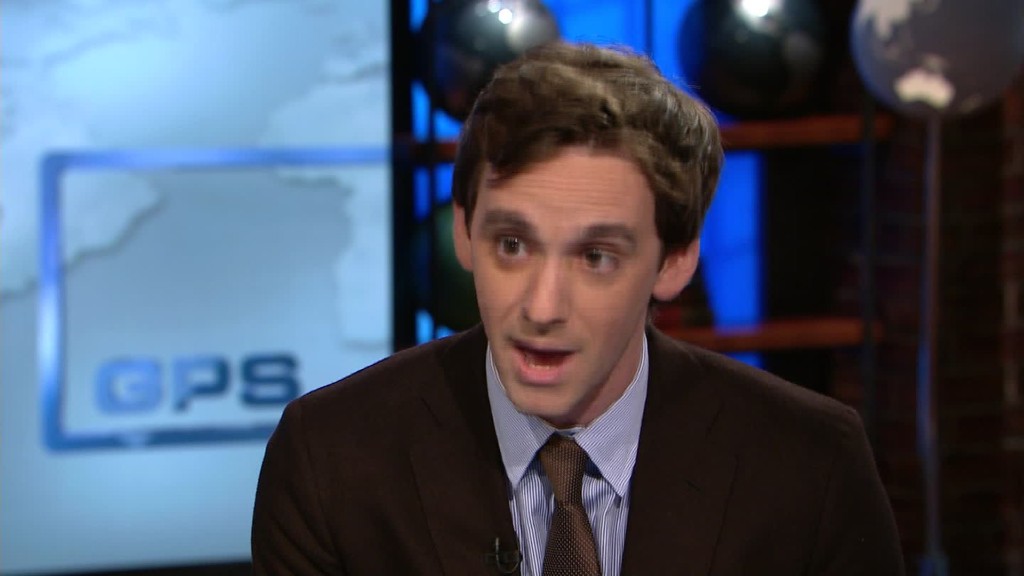
The most common occupation among American men is driving. But the advent of the driverless car could put lots of cab drivers, truck drivers and limo drivers out of work in the not-so-distant future.
Automation may also replace the jobs of many retail salespeople, cashiers, office clerks and food and beverage workers, said Derek Thompson, senior editor of The Atlantic, in an interview with CNN's Fareed Zakaria that will air Sunday.
"You look at the fleet of automated technologies, of software that exists right now, and it's rather frightening to me to think about how many jobs can be replaced by technologies that we understand to be right on the horizon," Thompson told Zakaria.
Thompson wrote The Atlantic's July/August cover story called "A World Without Work."
Related: The jobs that are most threatened by technology
He went to Youngstown, Ohio, a once-thriving steel town that has already experienced what Thompson calls "the end of work."
Jobs there disappeared after the steel industry collapsed thanks in part to globalization and technology.
With few full-time work opportunities left, residents of Youngstown have made do by cobbling together a series of smaller part-time jobs, Thompson said: t-shirt designer, bartender, mechanic, poet, urban farmer.
People in Youngstown don't ask "What do you do?" at a party, he noted. They ask, "What can you do?"
"If this is a glimpse of the future and the pillar of work that was there collapses for more of us, will it be replaced with just despondency or will it be replaced with something like resiliency?" Thompson said.
See the full interview with Derek Thompson on Fareed Zakaria GPS, which will air on CNN Sunday, August 23, at 10 am and 1 pm ET.
